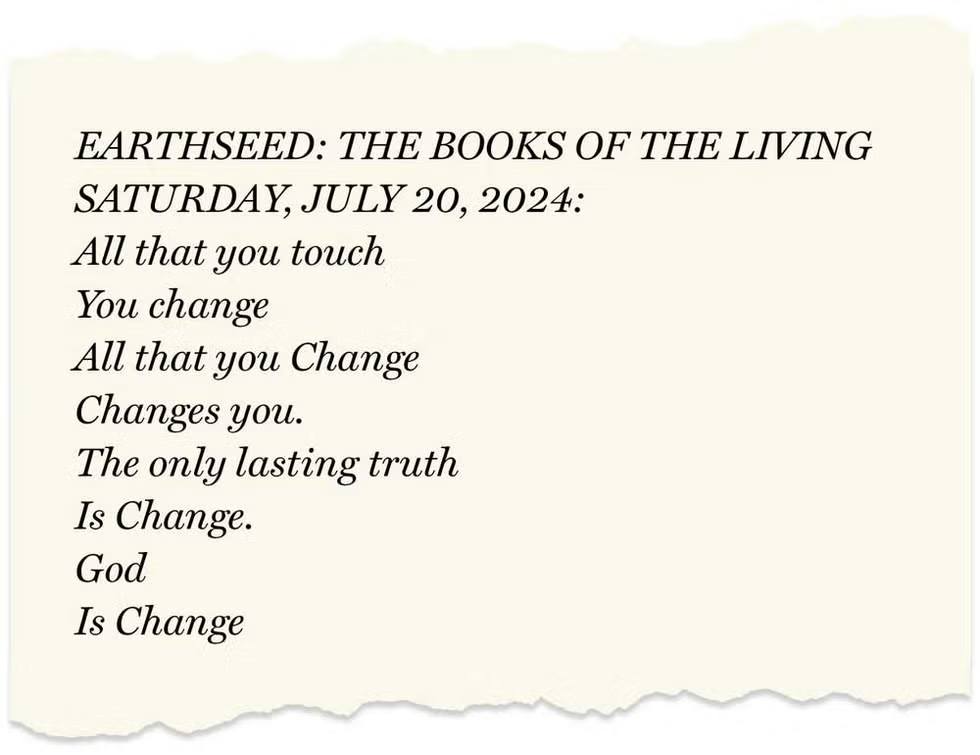Parables for Urgent Times
Reading AudaciouslyAmy L. Dalton
Published 18 October 2024

As yet another epic US election approaches, its appropriate to lift up the legacy of Octavia Butler’s work Parable of the Sower, as well as its sequel Parable of the Talents, which contain many plot details that eerily predict our current moment. Butler’s novels have been targeted by bans in both schools and prisons. CLBSJ shared the following post on our facebook page on July 20, 2024:
Afrofuturist and science fiction aficionados across the world are marking today as “Parable of the Sower Day” in recognition of the widely influential novel by the late Octavia Butler. The story begins with a journal entry by Butler’s protagonist Lauren Oya Olamina, dated July 20, 2024, in which she shares her wrestling with the state of the world she is living in, and her role in the face of it.
Butler’s book is an excellent example of the ways that artists and visionaries, working independently and outside of the church, engage creatively with the Bible in their efforts to communicate truth and clarity for our times. In fact, the book has been so influential that many people hear the phrase “Parable of the Sower” and think first of the novel, rather than of the scripture.
Butler works with the scripture implicitly, not explicitly. She includes the core lines from the Lukan version (Luke 8:5-8a KJV) at the very end of the novel, like a mini-epilogue. Throughout the novel, Olamina is wrestling with her contested relationship with her father’s religion, and also writing her own beliefs into a book of scripture that she calls “Earthseed.” At the end of the novel, just before the epilogue, her community gathers and reads Bible passages, Earthseed verses and other meaningful writings as a way to honor those they have lost. At this gathering, they also plant acorns together. Their care-filled weaving of togetherness across difference signifies and cultivates the good ground.
Luke 8:5-8:
“A sower went out to sow his seed: and as he sowed, some fell by the way side; and it was trodden down, and the fowls of the air devoured it. And some fell upon a rock; and as soon as it was sprung up, it withered away, because it lacked moisture. And some fell among thorns; and the thorns sprang up with it, and choked it. And other fell on good ground, and sprang up, and bare fruit an hundredfold.”
And when [Jesus] had said these things, he cried, He that hath ears to hear, let him hear!
More Reading:
“The Parable Is Now” by Lynell George, published by Alta Journal
“Suspicion Is More Likely To Keep You Alive Than Trust”: Affective Relationships with the Bible in Octavia Butler’s Parables by Lois Wilson
